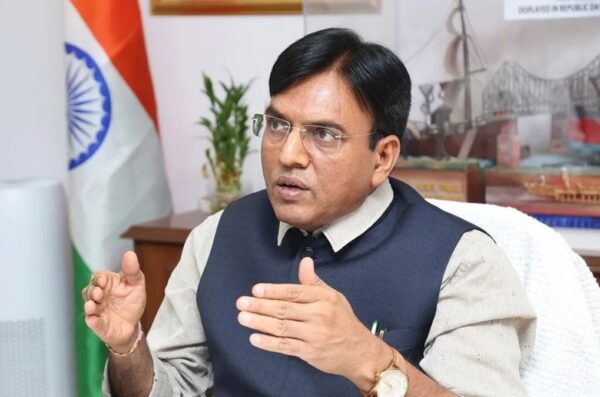In a landmark move that could redefine the landscape of Indian sports administration, Union Sports Minister Mansukh Mandaviya is poised to table the National Sports Governance Bill, 2025, in the Lok Sabha. The proposed legislation is not just a regulatory document; it is a bold reform agenda focused on athlete welfare, systemic accountability and structural integrity across the entire sports ecosystem of India.

At the heart of the bill lies a historic and long-contested provision to bring all the national sports federations, including the powerful Board of Control for Cricket in India (BCCI), under the purview of the Right to Information (RTI) Act, 2005. This move, which was first attempted over a decade ago by then UPA sports minister Ajay Maken, had faced internal political resistance and ultimately failed. However, this time around, the legislative push appears stronger and more decisive, with government sources confirming that extensive discussions were held with the BCCI leadership to gain their cooperation.
Despite not receiving direct government funds, the BCCI will be obligated to adhere to the same transparency and governance standards that apply to other national federations once the bill is passed. The cricket board’s inclusion becomes particularly relevant as Team India gears up for participation in the 2028 Los Angeles Olympics, a move that automatically positions the BCCI within the formal framework of a national sports body.
According to those involved in the legislative negotiations, it was not easy to bring the BCCI on board. However, they revealed that a sustained and constructive dialogue helped align the interests of both the government and the cricketing body. The message from the government is clear, Indian sports can no longer function without transparency. The bill aims to make the operations of sports federations more visible to the public, opening up access to governance structures, financial records and decision-making procedures.

Beyond its impact on cricket, the National Sports Governance Bill is designed as a sweeping reform package that promises to deliver legal clarity, gender inclusiveness, stronger athlete representation and a robust system of public accountability. The bill is not merely about compliance; it signals a philosophical shift in how India treats its athletes, not as passive representatives but as empowered stakeholders in the nation’s sporting progress.
Indian sports, despite moments of glory, has often been marred by administrative controversies, ranging from rigged federation elections and chronic mismanagement to the exclusion of athletes from policy decisions. With over 350 legal disputes still pending across various sports bodies, courts have repeatedly emphasised the need for a unified and enforceable governance model. The Delhi High Court’s validation of the 2011 Sports Code and unresolved litigations surrounding the 2017 draft bill further underscored the urgency for legislative action.
The journey toward this bill has been anything but smooth. For over a decade, successive governments have tried and failed to implement comprehensive governance reforms due to legal bottlenecks, shifting political landscapes and a general lack of consensus. Yet now, with a clear political mandate and judicial backing, this bill may finally pave the way for sustainable and credible transformation in Indian sports.

Officials also highlight the wider societal implications of the bill. Apart from enforcing accountability, it is expected to boost job creation, provide stronger protections for athletes, particularly women and minors and promote a cleaner, ethically grounded and globally competitive sports culture. The proposed law seeks to bridge the gap between performance and protection, where excellence on the field is matched by fairness off it.
If passed, the National Sports Governance Bill, 2025, could go down in history as a turning point, redefining what it means to be a sportsperson in India and reimagining governance as a platform for trust, merit and national pride.




